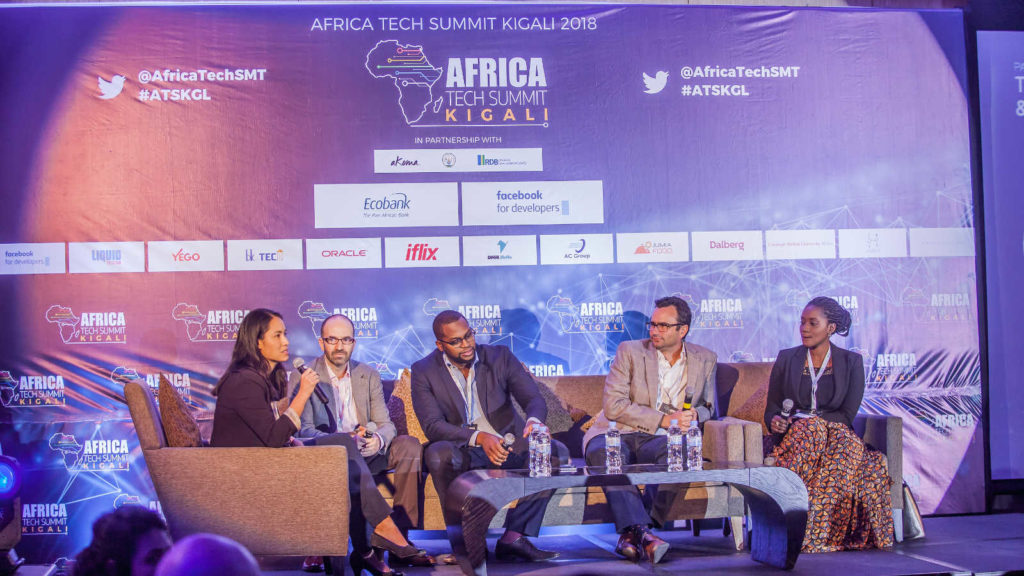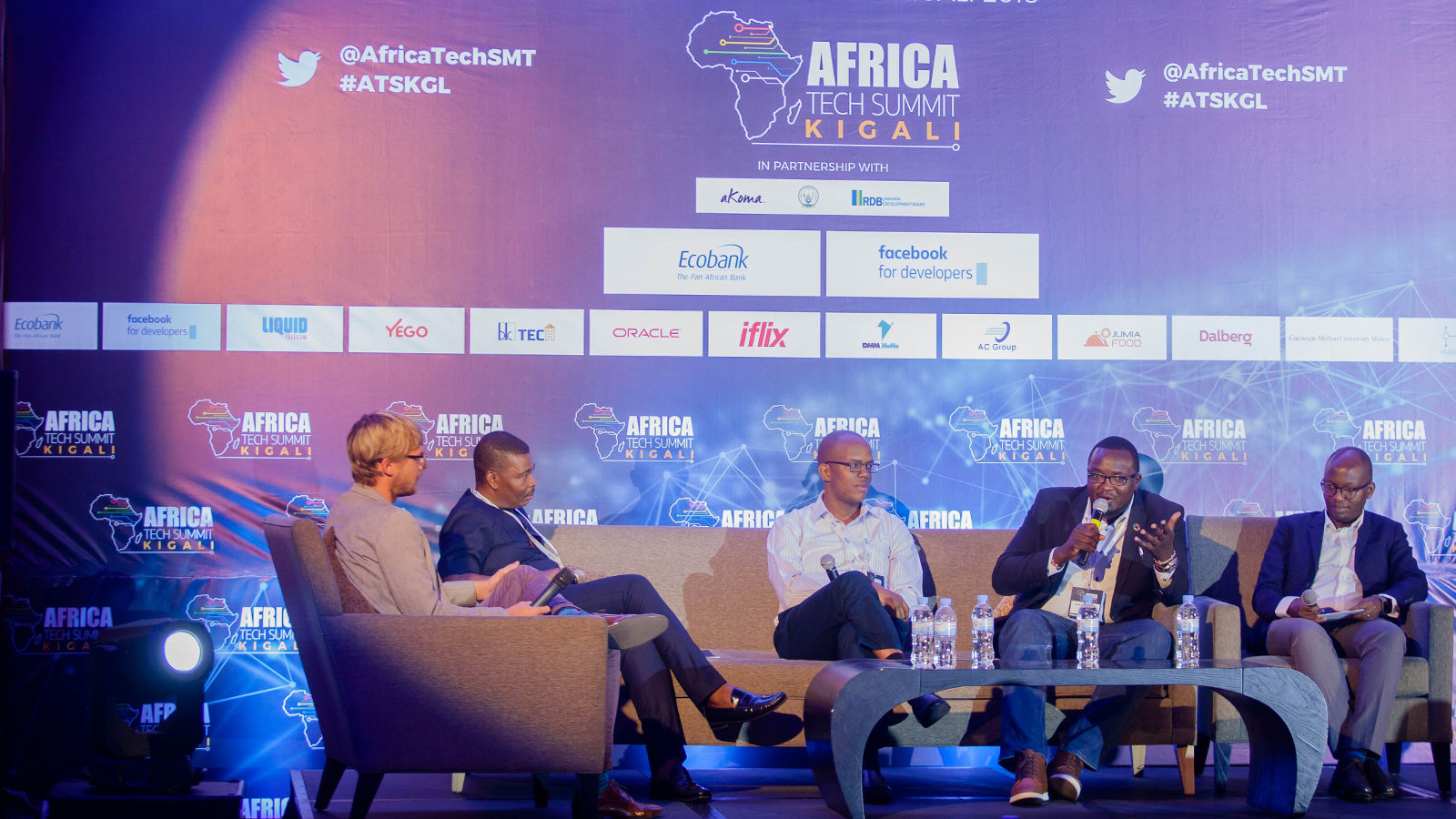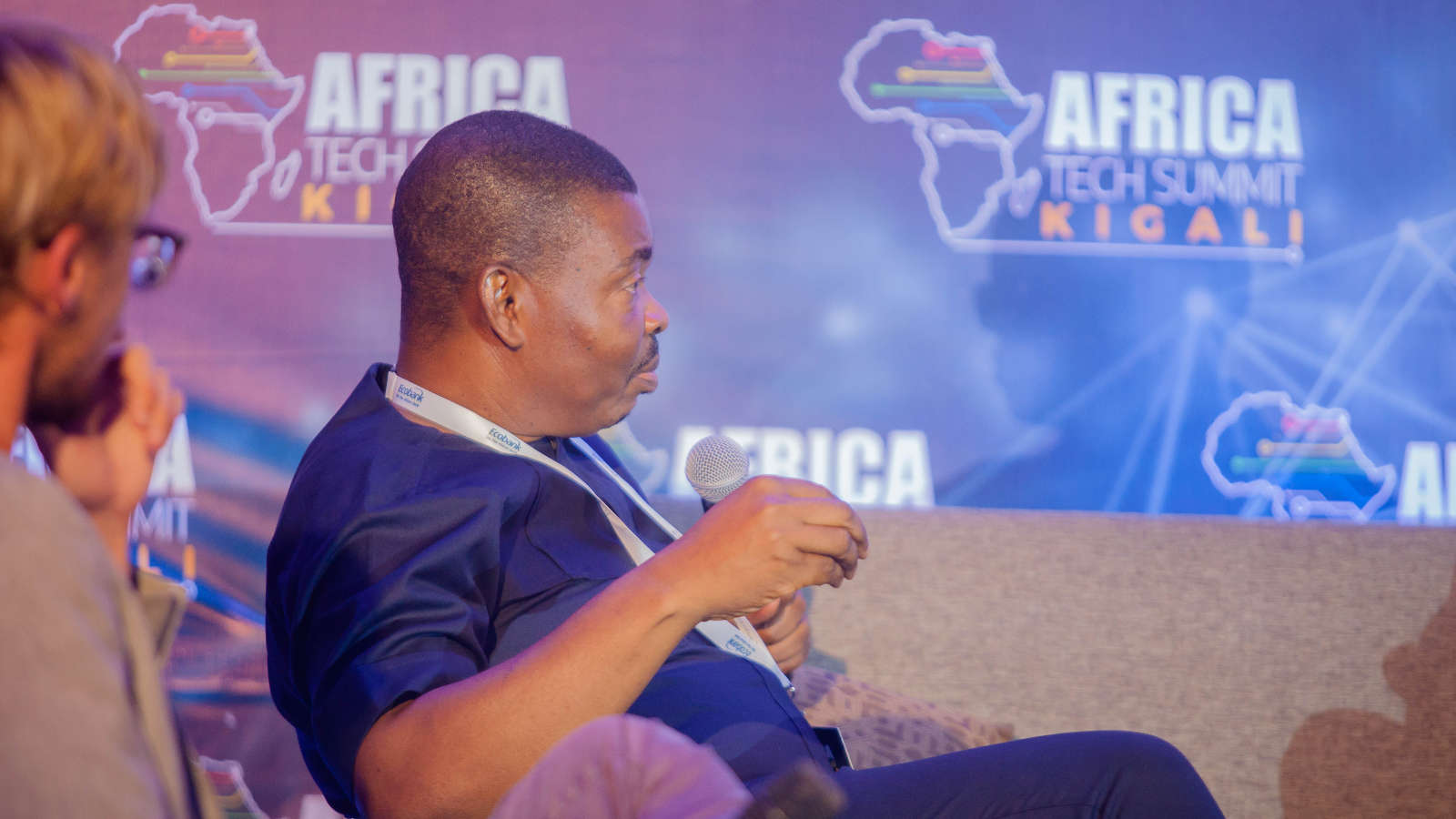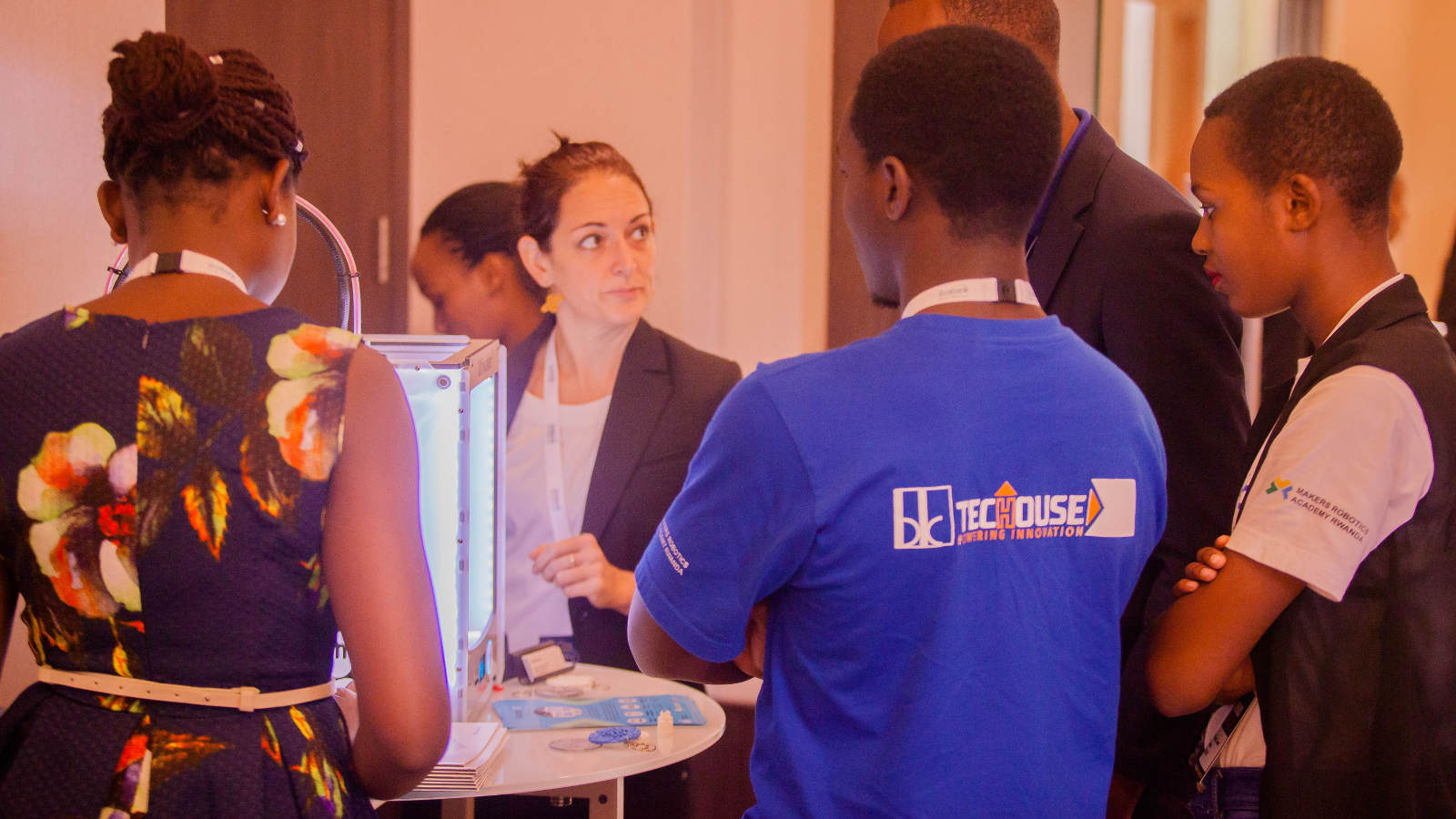Huawei introduced the Huawei FreeClip last year, aiming to bring a fresh design to the market. @memeburnza Huawei Freeclip unboxing #HuaweiFreeclip @theeboardmember ♬ In…
Ventureburn’s key takeaways from Africa Tech Summit Kigali 2018

The Africa Tech Summit held in Kigali was arguably February’s highlight in Africa’s tech scene.
With over 350 delegates from 29 countries and a diverse speaker line up including representatives from venture capital (VC) firms, innovation hubs, tech giants, as well as startup founders from around the continent the summit turned out to be a treasure trove of ideas and insights on the African tech ecosystem, the solutions to problems it has developed and more importantly where the continent is headed.
In case you missed it, here’s a roundup of the trends, startups, ideas and tips that stood out for us.
Key overall trends
1.More startups focusing on B2B
Speaking in a panel discussion, TLcom TIDE Africa’s Ido Sum, said startups are starting to notice that consumer facing services are harder to monetise and are instead shifting focus to enterprise solutions.
“There’s a realisation that some of these things are a bit more complex than we used to think and acquiring customers is more expensive than was imagined,” said Sum.
“Hence I think we will be seeing this year a bit more happening on the b2b (business-to-business) side were monetisation is a bit easier and focused on teams than in the b2c (business-to-consumer) side, hence they have a better understanding on how they go to the markets and better utilise the right channels in that aspect.”
2.More founders building to scale
“What is actually true across the board is we are seeing different qualities of founders. Founders that understand the big picture and are trying to build big startup businesses that really scale and have a global impact. That mentality, we are seeing a lot more of that,” said IFC Venture Capital’s Wale Ayeni.
3.Rise in social impact ventures
“Something that’s really interesting is there are more and more innovations which are making a real social impact in Africa using technology,” reckoned Orange Digital Ventures Marieme Diop, mentioning examples like Cameroonian medtech GiftedMum.
Funding
1.Slowly but surely
The general sentiment echoed at the summit was that funding, disruption and support for startups is picking up, and in some places even accelerating.
Victoria Ventures founder and director Stephen Gugu was one of the speakers at the event who shared that sentiment.
Speaking in a panel discussion titled Seed to scale, Gugu said the East African ecosystem had slowly grown and that he was hopeful this would translate to bigger funding deals.
Read more: 7 insights we learnt about disruption on the continent at Africa Tech Summit
“If you look at ecosystems there’s a bit more that is happening in terms of support from incubation to acceleration. There’s a bit of angel investing also starting to happen, so I think it’s just a natural progression and I feel going forward we will only see bigger deals being done, because there are bigger companies trying to do more ambitious things,” he said.

On the same panel, Sasware founder and Lagos Angel Network member Collins Onuegbu confirmed this, noting that inspite of Nigeria being in a recession for most of 2017, the deals completed within the country are getting bigger.
2.Need to encourage co-investing
Gugu also noted that “old money [was] getting locked into real estate and shares” and that because of this there was a need to encourage “evangelisation” of co-investing.
“I see the concept of co-investing with new money, people who are not extremely high net-worth, they are interested. They want to participate in some of these things because it makes sense for them, so it’s important to then bundle together,” he said.
3.When raising money, it’s important to think of external factors, like elections
As many entrepreneurs already know, raising money is not so easy. But Twigafoods Caine Wanjau’s take on how the Kenyan startup did it added another dimension to the argument.
“It’s never easy raising money, the degree of easiness is normally determined by how well you’re meeting your targets as a business, what you set out to achieve and how in control you are of things like external factors. So in Kenya you have things like elections, these are things you cant plan for but you need to account for in your business plan as you scale and grow,” said Wanjau.
He advised startups to determine what their proof points are when closing a seed round, “from an operations, tech, human resources and administrative perspective”.
“Because when an investor comes in, they come in with a very clear idea on how you set out to do what you say you will achieve,” he advised.
4.Startups getting better at articulating their value proposition
GSMA ecosystem accelerator senior market engagement manager Martin Karanja said the quality of startups applying to the accelerator have improved.
“Looking at the first round of funding, the quality of applications we got in, we really had to scan through carefully to identify the right ones,” said Karanja.
He said that the key to fundraising was articulating value. “Money is not just there to be thrown around because you are running (a startup). For an investor you have to articulate the funding.”
“Generally the quality of applications and how startups are being able to articulate their defining position to potential investors is improving, a lot more can be done,” he added, calling for more support for startups around that.
“The level of exposure that most apps have in Africa is probably lower when it comes to finding opportunities compared to European ones,” he added.
5.The need for indigenous funding
Another dominant theme at the summit was the need for, as Onuegbu put it ” indigenous money”, that is more African VC funding African startups.
This sentiment could be stemming from an observation Gugu shared that most of the startups that receive funding are not founded by Africans.
“In Kenya there is this view that, and I think you will see some reports that, the startups that are getting funded they are African startups, but they are not necessarily startups founded by Africans,” he said.
“A lot of our money comes into the continent from outside and add on to that, people fund who they are familiar with. But in Nigeria what we are trying to do is raise enough indigenous founders to make sure that the money they get is also indigenous money,” said Onuegbu (pictured above).
“Indigenous money will look for indigenous environment to invest,” he added.
He said he was worried that startups getting funding from overseas “will start building businesses that are comfortable with those that invested in them” instead of focusing on local solutions.
“We as an African continent we need to fund ourselves. More of local investments is one of the things I’d like to see going forward,” opined Karanja.
6.Silicon Valley obsessions
Gugu also cautioned startups on the “Silicon Valley obsession” model of raising funds.
“We need to look at things from an ecosystem perspective. A typical startup raises funding in pre-seed, seed, Series A, Series B and Series C funding. If you’re going to try to do that you’re going to fall off a cliff,” he said.
“You have to find out how your ecosystem works,” he emphasised.
7.Why ecosystems need to collaborate
Addressing the traditional bias and focus towards the ecosystems in Kenya, Nigeria and South Africa, Karanja said GSMA’s accelerator on average received between 50% and 60% of applications from the former two countries.
“There’s need for more collaboration between the different ecosytems,” he said.
“How do we help the other ecosystems in Malawi, Rwanda – there are startups there, there’s an ecosystem, probably still growing, but how do we help them attract funding?” he added.
8.’Investors are lazy’
AHL Venture Partner’s Ben Peterson, who was part of The Investment Landscape and opportunity panel, stated that “there is a lot of interesting and good deals in countries that aren’t on most investors’ radar screens”.
“But a lot of investors are lazy and don’t take the time to go and scope for deals in these countries and its therefor incumbent on entrepreneurs to understand which funds have in their mandate to invest in countries that they operate in and connect with those funds and make your case,” said Peterson.
His said his firm, which has 35 different investments in companies and funds across 27 countries, had a “pretty broad, geographic scope of investment”.
Ecommerce
1.Key challenges to ecommerce growth
In a panel on Building an ecommerce powerhouse in Africa, Ecobank senior group manager for trade finance Alice Kilonzo-Zulu said the main hindrances to the growth of ecommerce on the continent are trust and affordable internet.
“A lot of people don’t trust online payments, they have concerns around fraud, which is a big concern – a reality in some cases as well,” said Kilonzo-Zulu.
Africa Tech Summit Kigali was attended by over 350 delegates from 29 countries, the speaker line up included VCs, startup foudners as well as representatives from global tech companies.
She said fintechs developing payment solutions could mitigate this by putting in place “very strong security standards” which would then assure consumers.
“I think that is probably one of the ways that you can actually get people to believe that its actually not a big problem to make payments online,” she said.
2.How long till Africa has a billion dollar ecommerce industry?
DMMHeHe Alex Kapungu believes Africa could be on the verge of a “billion dollar” ecommerce industry.
“If you look at China or Japan, or the other advanced countries, ecommerce or internet businesses took 20 years,” said Kapungu.
“There’s a lot of great companies trying to solve the challenges we’ve mentioned and it is just a matter of time before these challenges get solved and we have billion dollar ecommerce in Africa,” he predicted.
3.Tackling logistics
Jumia Food Rwanda country manager Albert Munyabugingo shared how startups are looking to other innovative solutions like what3words to tackle logistics in an industry where he said delivery gains customer trust.
Kapungu said logistics is a big problem, but the main issues are not around transport but more around tech.
“Its not a lack of trucks or the lack of motos (motorcycles), it’s more a lack of technology to bring this together. So one of our offerings is to develop tech that brings together people with trucks and motos, even the post office for instance,” he said.
He called for the incorporation of tech into existing infrastructure like post offices and kiosks to tackle issues around logistics.
“People don’t write letters anymore, but they still have those trucks. They still have that manpower that is just sitting idle there,” he said.
4.Startups that stood out
Golix
As Zimbabwe continues to struggle with liquidity issues, Golix product manager Yeukayi Kusangaya — in a panel titled Blockchain for Africa: The opportunity and possible outcomes — said the Zimababwean cryptocurrency exchange platform is “a solution to our economic crisis”.
“For a Zimbabwean it’s really important because our financial situation is not stable. Our forex reserves are very low so people cant make international payments, we have a currency that is not recognised anywhere else except in Zimbabwe,” Kusangaya said.
She said beside facilitating international payments and remittances, the startup also offered training in cryptocurrency.
Kuunda 3D founder Elizabeth Rogers believes 3D printing is enabling innovation on the continent, particularly in the medical field.
The Nairobi-based startup which sells 3D printers and filaments, designs and prints, as well as trains companies on 3D printing, is working with a non-governmental organisation, Voices of Africa, to 3D print and test medical tools.
“The medical tools supply chain in tanzania is weak, it can take six months to get something. We are 3D printing these things to fill in that gap in the medical supply chain,” said Rogers (pictured below, second from left).
She said Voices of Africa is testing simple devices like umbilical cord clamps, tweezers, as well as a microscope that uses lenses from disposable cameras, which the startup can print components for under US$100.
In addition, the startup is also working with the Lake Victoria Disability Centre in Tanzania to 3D print upper limb prosthetics.
“It saves them money and time, 3D printed prosthetics can be around US$100 versus thousands of dollars if they are done in a traditional way,” she added.
She said she founded the startup in late 2015 after she saw donated equipment that had broken down, laying unused in Tanzania because of lack of spare parts.
“It just kind of came to me at that point that maybe this is an opportunity for 3D printing, this is where it could be useful,” said Rogers.
Disclosure: Daniel Mpala was a guest at Africa Tech Summit Kigali
Featured image (left to right):NISK Capital’s Sara Oon, TLcom TIDE Africa’s Ido Sum, IFC Venture Capital’s Wale Ayeni , AHL Venture Partners’ Ben Peterson, and Orange Digital Ventures’ Marieme Diop




